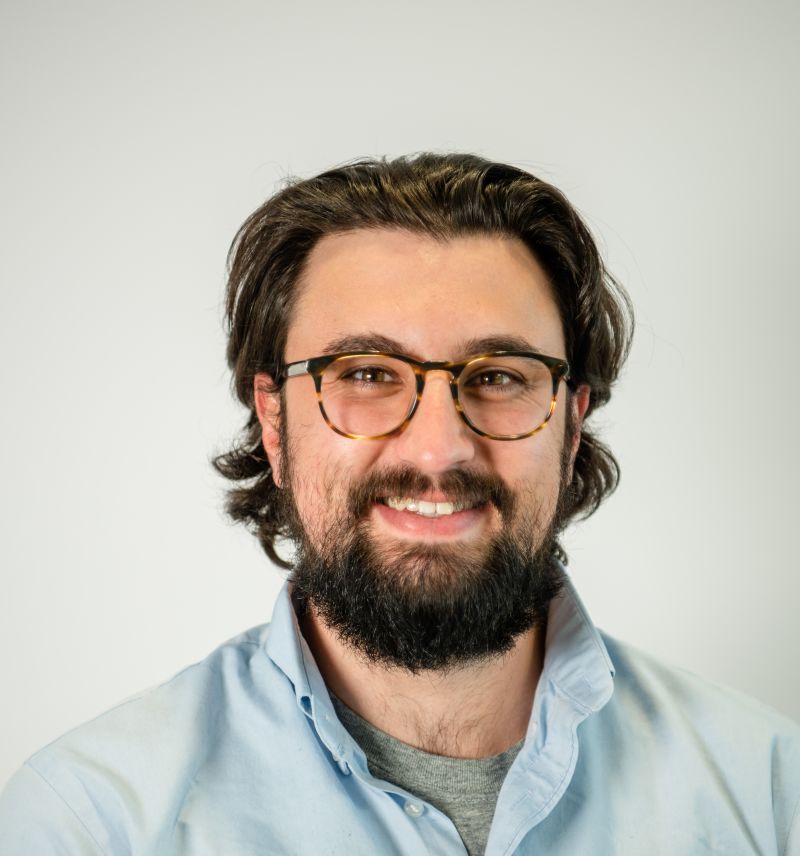
Stoan Stewart
M.S. in Global Commerce 2017
The best way to get ahead is to be a good listener and understand where a person is coming from. This is especially true if you are working with people from different cultures. The way cultures react to, discuss, and present information differs.
Why did you decide to pursue the M.S. in Global Commerce Program at UVA?
I pursued the M.S. in Global Commerce Program because I needed a career change. I graduated in 2014, turned down a full-time job to teach English abroad, and was later rejected due to a medical file not being sent in time. So I found a few different part-time opportunities and ended up working at a government consulting company in D.C. The work was okay, but it wasn’t what I was interested in or went to school for. So I decided to apply to the M.S. in Global Commerce Program and get a chance to go to Spain and China!
What was your most memorable class and why?
The program itself and the way it is set up are almost too interesting to pick only one class, but if I had to choose, I would say the yearlong process of writing a master’s thesis with three other people sticks out. It was incredibly daunting at first—writing a master’s thesis in a group of four and making sure the content was advanced and interesting. Luckily, I had three amazing peers in my group, and we ended up designing an omnichannel distribution model taking into account Amazon, Walmart, 3PLs, and other incredibly interesting companies!
Did you take advantage of Commerce Career Services and if so, how did they help you in the job search?
I took advantage of the career services before I even stepped foot on campus! I was regularly in contact with the CCS team, and the resources they provided were invaluable. The career counselors provided me with a list of leadership development postings, contacts within companies to get a better understanding of the work, resume tips, salary negotiation tips, and more. I could not have gotten the job I did without their help.
What do you enjoy most about your job?
Every day I face a different challenge. I am constantly working with people from different backgrounds (culturally, academically, and professionally), developing solutions to complex problems, and having fun while doing it! I have interactions with people from seemingly every department, and I learn a lot about the entire process from Order to Delivery/Payment. It’s incredibly refreshing that I could be working on Lean manufacturing improvements with a supplier one day and then working with how to provide a better solution to an internal account process the next. My job keeps me on my toes every day, and I’m thankful for that.
What do you find most challenging?
I have been in my role with Resident Home for only six months now. The consumer goods industry is vastly different from the OEM (original equipment manufacturer)/heavy trucking industry, and that is a challenge I face daily. The difference in production volume, potential product solutions, LTs, etc. are all very different from what I was used to, so it is quite a challenge to get up to speed with the standards of another industry. However, I am learning a heck of a lot more about different textiles and woven structures of fabrics, so when I buy my own sheets/mattress, now I know what I’m looking for!
Walk us through a typical day. For example, what did you do on Tuesday?
No two days are the same! I am essentially the project leader for a few different projects in motion now, so I meet with my stakeholders/internal team and see the progress that was made. For example, we might meet on EDI (electronic data interchange) implementation between a supplier, customer, and internally to set expectations and see if there were any issues. I have three different weekly/biweekly meetings with our suppliers to go over the current situation and any potential issues that might need resolution. At one of those meetings, I share KPIs (key performance indicators) that I developed, and ask for a comprehensive plan to improve them to meet our goals. I also work with customer service to identify any orders that might be delayed or need follow-up on communication to set expectations for our customer base. I also interact with a few other potential suppliers in the RFQ (request for quotation) process, as well as meet with our logistics team to discuss how we want to set our distribution networks to minimize transportation costs while ensuring we have enough stock to go around to all our customers within the United States. It varies a lot, but whatever it is, it’s always interesting.
What was your biggest takeaway from the program?
The best way to get ahead is to be a good listener and understand where a person is coming from. This is especially true if you are working with people from different cultures. The way cultures react to, discuss, and present information differs. If you expect everyone to conform to your ways of working, you’re out of luck. Also, I made friends from all over the world!
What advice do you have for future students in the program?
Get used to being uncomfortable in new situations, and work on how you react in those moments. The cultural differences in simple, everyday things (e.g., grocery shopping) can be astounding, but I recommend you look forward to those differences, as opposed to shying away from them. Also, ask classmates from the locations you visit to recommend their favorite places to eat!
- Undergraduate Degree Business Administration - Supply Chain/Operations; International Studies - Global Sustainability & Development
- Undergraduate Institution North Carolina State University
- Hometown Goldsboro, NC
- Current Job Resident Home, Supplier Manager (Remote)
- First Job Post-Graduation Volvo Group, VGIGP - Logistics Engineer (Dublin, VA)